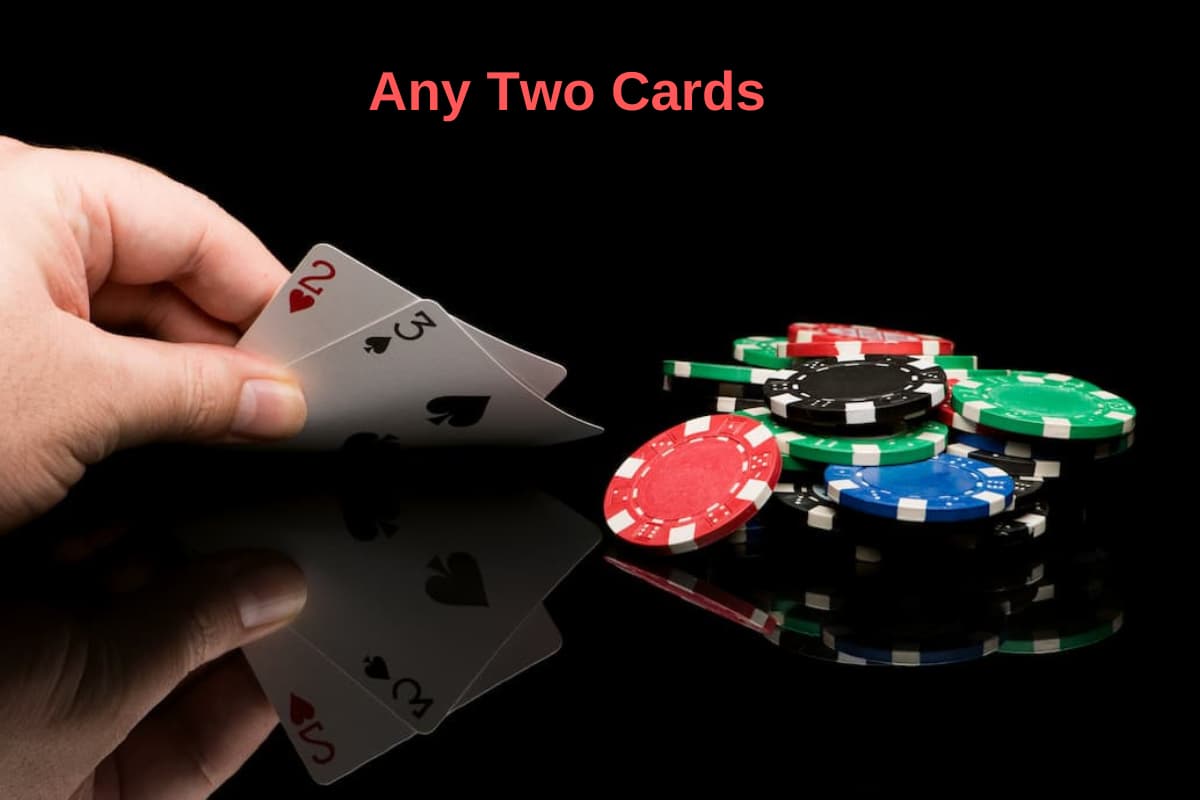When opponents seem to play any two cards regardless of their strength, we say they are playing “any two cards” (ATC). This term implies they enter pots with a wide range of hands. They’ll be playing far more hands than a typical winning player. While it often carries a negative connotation, referring to reckless or undisciplined play, the ATC style can be highly effective when utilized properly.
What does any two cards (ATC) mean?
Literally, ATC means your opponent could hold any two cards in the deck when putting chips in the pot. They aren’t very selective or tight with the hands they voluntarily put money in with on the flop and beyond. ATC players will play junk hands like 8-4 suited, small pocket pairs, off suit connectors, and more speculative hands that most players instantly muck. They tend to continuation bet the flop frequently without strong hands, hoping to outplay their opponent postflop.
The ATC approach relies on aggression, unpredictability, and actively accumulating small pots rather than patiently waiting for premium holdings. It’s associated with loose aggressive players who apply relentless pressure without strong hole cards. While ATC has merit in some player types and situations e.g. nitty cash games, it loses effectiveness against seasoned opponents capable of making sound laydowns.
Famous ATC Styles
Several high profile, successful poker players have embodied a loose, aggressive ATC approach. Gus Hansen, a popular high stakes player, often entered pots with a wide array of speculative hands. His success was a result of playing back at opponents frequently. His relentless aggression put constant pressure on rivals, although it proved costly at times. Other famous ATC practitioners include the late David “Devilfish” Ulliott and Jamie Gold.
While these ATC players have experienced success, their undisciplined style is often not the optimal path. Against world class players especially, balancing your play while still applying pressure is generally more effective than playing a pot with any two cards. This was evidenced when Jamie Gold went on High Stakes Poker and failed miserably.
In one of the most famous cases of blind poker, Annette Obrestad once won a 180 person SNG without looking at her cards. This demonstrated the value of playing situations, and not cards.
Why ATC has flaws
ATC can be a profitable approach in the right situations and player pools. However, against advanced opponents capable of narrowing your range by laying down marginal hands, it loses substantial effectiveness. These players will identify the ATC tendency and hero-call you more or bluff back knowing you’re range is wider than usual.
ATC also relies on hitting flops or continuation betting relentlessly without proper hand equity. When the cards don’t connect, ATC players often lose big pots due to bluffs and semi-bluffs getting caught on later streets. So while the approach seems fun and aggressive, it requires hitting more hands than probability permits.
Summary
Optimal play requires narrowing ranges, playing fewer hands yet more aggressively with those you do play. The ATC approach tends to contradict fundamental poker theory, although it can be mixed in sparingly to remain unpredictable. Mastering a balanced approach is essential for long term poker success.
So while the “any two cards” mentality seems splashy and entertaining, poker is ultimately about careful hand selection, betting with intention, and balancing your ranges. Playing any two cards no matter what remains an undisciplined fallacy among pro players, yet still creeps into many casual players’ strategy from time to time.



